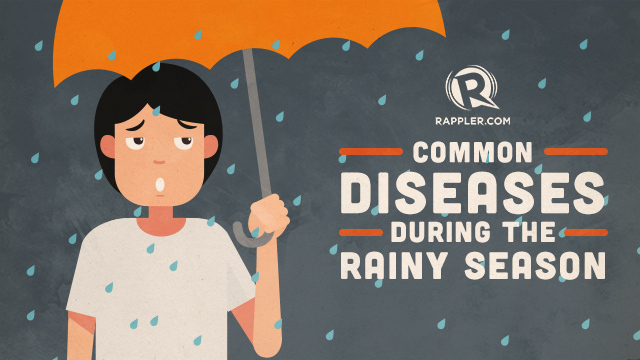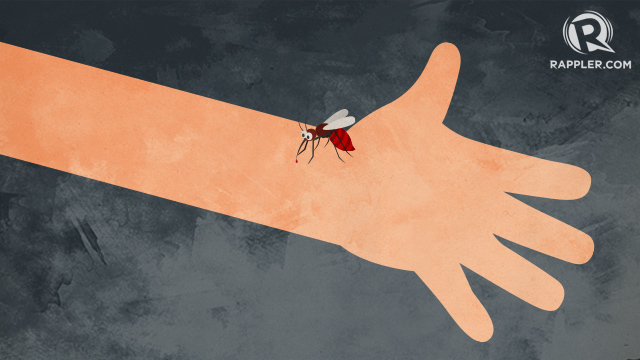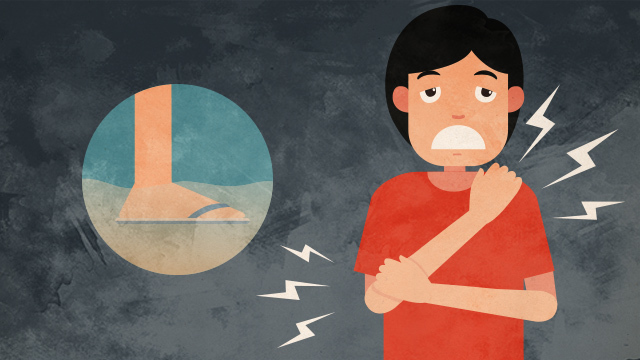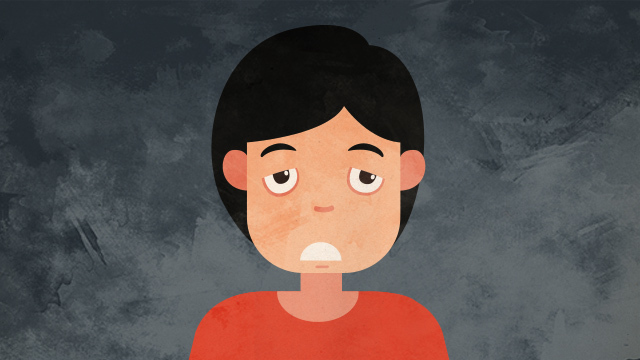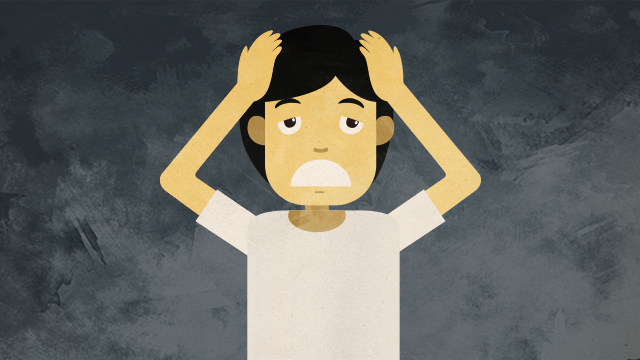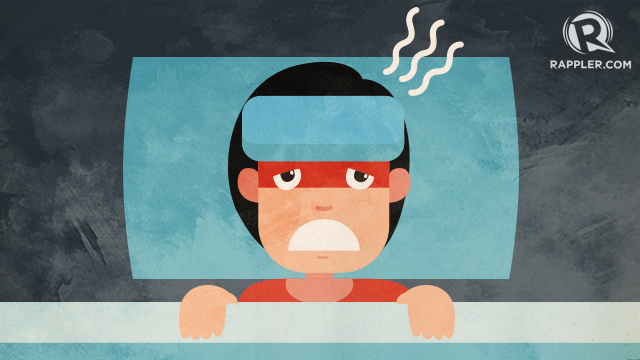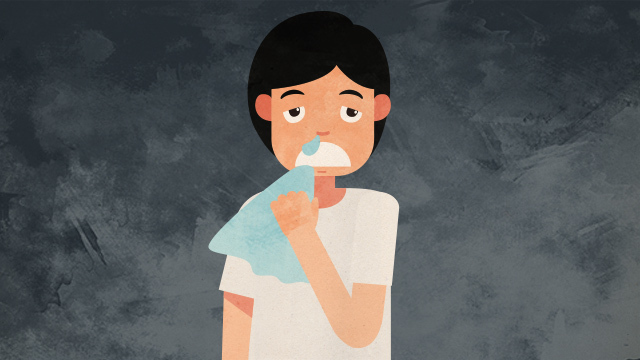All graphics by Raffy de Guzman/Rappler
MANILA, Philippines – There are several common diseases to watch out for during the rainy season. The Department of Health (DOH) has issued advisories to help Filipinos prevent getting sick during this time.
The common diseases during the rainy season include dengue, leptospirosis, cholera, hepatitis A, typhoid fever, and influenza.
“Typhoons and heavy rains may cause flooding which, in turn, can potentially increase the transmission of water-borne diseases, or diseases transmitted through water contaminated with human or animal waste,” said DOH in an advisory.
Generally, the public is advised maintain proper hygiene. The DOH said the public must drink clean water only.
“When in doubt, it is a must to wait for two minutes or longer when the water reaches a rolling boil, or chlorinate drinking water to make it safe,” said the DOH.
Food must be properly cooked, while waste should be disposed of properly. The DOH said Filipinos must wash their hands properly before and after eating as well as after using the toilet.
“When sick, consult a doctor or go to the nearest health facility at once if you, or any household member, have any sign or symptom of infection,” said the DOH.
The public is also discouraged from wading or swimming in flood waters.
Listed below are the 6 common diseases during the rainy season, their signs and symptoms, treatment, and how to avoid them:
What is it?
An acute infectious disease caused by a bite of the aedes aegypti day-biting mosquito, which lays eggs in clear and stagnant water
Signs and symptoms:
- Sudden onset of high fever which may last two to 7 days
- Joint and muscle pain
- Pain behind the eyes
- Weakness
- Skin rashes – maculopapular rash or red tiny spots on the skin called petechiae
- Nose-bleeding when fever starts to subside
- Abdominal pain
- Vomiting of coffee-colored matter
- Dark-colored stools
Treatment:
- There is no known cure to dengue. The treatment depends on what symptoms the patient is manifesting. Once you notice signs of dengue, immediately go to your doctor. Dengue patients are advise to drink lots of fluid to manage the disease.
- Healthy individuals aged 9 to 45 may take the dengue vaccine to avoid the disease.
How do I prevent it?
- Cover water drums or pails at all times to prevent mosquitoes from breeding.
- Replace water in flower vases once a week.
- Clean all water containers once a week. Scrub the sides well to remove eggs of mosquitoes sticking to the sides.
- Clean gutters of leaves and debris so that rain water will not collect as breeding places of mosquitoes.
- Old tires used as roof support should be punctured or cut to avoid accumulation of water.
- Collect and dispose all unusable tin cans, jars, bottles and other items that can collect and hold water.
What is it?
A disease caused by the entry of the leptospira bacteria through wounds when in contact with flood waters, vegetation, and most soil contaminated by the urine of infected animals, especially rats. Has an incubation period of 7 to 10 days.
Signs and symptoms:
- Fever
- Non-specific symptoms of muscle pain, headache
- Calf-muscle pain and reddish eyes for some cases
- For severe cases, liver involvement, kidney failure or brain involvement indicated by yellowish body discoloration, dark-colored urine and light stools, low urine output, severe headache
Treatment:
- Take antibiotics prescribed by your doctor.
- Consult your doctor early because early recognition and treatment of leptospirosis will prevent complications from the disease.
How do I prevent it?
- Avoid swimming or wading in potentially contaminated water.
- Use proper protection like boots and gloves when work requires exposure to contaminated water.
- Drain potentially contaminated water when possible.
- Control rats in the household by using rat traps or rat poison. Keep your house clean.
What is it?
A disease caused by the vibrio cholerae bacteria, transmitted by eating food or consuming water contaminated with human waste
Signs and symptoms:
- Sudden onset of frequent painless watery stools
- Vomiting
- Rapid dehydration like sunken eyeballs, wrinkled and dry skin
Treatment:
- Replace lost body fluid by giving Oral Rehydration Solution (ORESOL) or a homemade solution composed of one teaspoon of salt, 4 teaspoons of sugar mixed with one liter of water.
- If diarrhea persists, go to the hospital
How do I prevent it?
- Drink only safe and clean water. If unsure, boil drinking water. Upon reaching boiling point, extend boiling for two or more minutes.
- Do water chlorination.
- Keep food away from insects and rats.
- Wash and cook food properly.
- Sanitary disposal of human waste
- Use toilet properly and clean toilet every day.
- Wash hands with soap after using the toilet and before eating.
- Keep surroundings clean to prevent flies and other insects and rodents from breeding.
What is it?
A disease caused by eating food contaminated with human waste and the urine of persons who ares sick with hepatitis A
Signs and symptoms:
- Fever
- Flu-like symptoms like weakness, muscle and joint aches, loss of appetite, dizziness with or without vomiting
- Abdominal discomfort
- Jaundice may follow after a few days
Treatment
- No specific medicine to cure the patient or shorten the course of illness. Infected patients must be isolated, advised to rest, take plenty of fluids,and avoid fatty foods.
- Patients who fail to take fluids or are too weak to eat are sometimes admitted to the hospital for intravaneous administration of fluids and vitamins.
How do I prevent it?
- Wash hands after using the toilet, before preparing food, and before eating
- Dispose human waste properly.
- Thoroughly cook oysters, clams, other shellfish for 4 minutes or steam them for one minute and 30 seconds.
- Practice safe handling and storage of food and water.
- The disease is self-limiting and may last for one to 2 weeks. Patient often recovers even without treatment.
What is it?
A disease caused by the salmonella typhi bacteria, transmitted by consuming food and water contaminated with human waste
Signs and symptoms:
- Sustained high fever
- Headache
- Malaise or weakness
- Loss of appetite
- Diarrhea or constipation and abdominal discomfort
Treatment:
- Take antibiotics duly prescribed by your dog.
- Treatment varies depending on the symptoms of the patient.
- Get the vaccine to avoid getting the disease.
How do I prevent it?
- Boil water for drinking. Upon reaching boiling point, extend boiling for two or more minutes.
- Do water chlorination
- Cook food well and always use food cover to prevent flies and other insects from contaminating them.
- Wash thoroughly all vegetables and fruits especially those that are eaten raw.
- Avoid eating foods sold by street vendors.
- Wash hands with soap and water after using the toilet and before eating.
- Keep surroundings clean to prevent breeding of flies.
What is it?
A disease caused by the entry of the influenza A, B, or C virus into the respiratory tract, has an incubation period of one to 3 days.
Signs and symptoms:
- Fever of at least 38 degrees Celsius
- Headache
- Runny nose, sore throat, cough, or other respiratory manifestations
- Muscle or joint pains
Treatment:
- Use of antiviral agents within the first two days may halt the course of influenza illness. Consult your physician regarding antiviral agents.
- Paracetamol for fever. Do not give aspirin to children.
- Antibiotics to be given only due to complications of influenza such as pneumonia or otitis media.
- Adequate rest
- Increase intake of oral fluids and eat nutritious foods
How do I prevent it?
- Influenza vaccination preferably to be given anytime from February to June.
- Provide separate room to a person sick with influenza.
- Cover mouth and nose when sneezing or coughing to prevent spread of the virus.
- Avoid crowded places. Distance yourself from at least meter from people who are coughing or are sick with influenza.
- Wash hands frequently with soap and water.
Source:– Rappler.com - https://www.rappler.com/nation/183043-doh-tips-common-rainy-season-diseases-prevention

